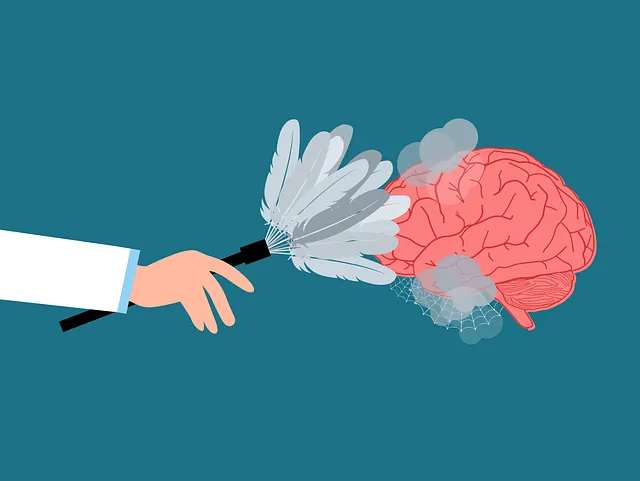Mental health professionals in fast-paced environments, like Kaiser Permanente training programs Boulder, face challenges including intense emotions, traumatic disclosures, and work-life balance issues leading to burnout and stress. Effective risk management involves understanding these stressors, implementing robust communication strategies, stress management techniques, and prioritizing self-care, supervision, and clear boundaries. Kaiser Permanente Boulder's Evidence-Based Training (EBT) programs integrate latest research, focus on emotional intelligence, and promote continuous learning, enhancing patient care while creating a supportive environment for professionals. These comprehensive training programs help manage risks, prevent burnout, and deliver high-quality services, contributing to improved clinical outcomes and fostering an open discussion of challenges and successful coping mechanisms.
Mental health professionals face unique risks on a daily basis. This article explores comprehensive risk management planning, a vital strategy for mitigating potential hazards within the therapeutic environment. We delve into understanding specific mental health risks, including those associated with client care. Effective risk assessment strategies and evidence-based training initiatives from Kaiser Permanente Boulder programs are highlighted as key components of a robust safety framework. Additionally, we discuss implementing safety protocols, continuous improvement, and professional development to enhance resilience in mental health practice.
- Understanding Mental Health Risks in Practice
- Developing Comprehensive Risk Assessment Strategies
- Evidence-Based Training: Kaiser Permanente Boulder Programs
- Implementing Safety Protocols for Client Care
- Continuous Improvement and Professional Development
Understanding Mental Health Risks in Practice

Mental health professionals regularly confront complex challenges that can lead to significant risks. From managing intense emotions and traumatic disclosures from clients to balancing work-life boundaries, these practitioners are at a unique risk of burnout and stress-related issues. According to research, mental health professionals in fast-paced environments like hospitals or large practices, such as those offered by Kaiser Permanente training programs Boulder, are particularly vulnerable to workplace stressors. These risks aren’t just personal; they can also impact patient care if left unaddressed.
Effective risk management involves understanding these challenges and implementing robust communication strategies and stress management techniques. Burnout prevention is a crucial aspect of this process, emphasizing the need for self-care, supervision, and clear boundaries to sustain professionals’ well-being in their demanding roles.
Developing Comprehensive Risk Assessment Strategies

Mental health professionals play a critical role in assisting individuals navigate complex emotional landscapes. To provide effective care, they must be adept at identifying and mitigating risks that can significantly impact their well-being and that of their clients. Developing comprehensive risk assessment strategies is a cornerstone of this process. Inspired by industry leaders like Kaiser Permanente training programs in Boulder, professionals are equipped with tools to conduct thorough evaluations.
These assessments go beyond merely identifying potential hazards; they focus on fostering resilience through coping skills development and integrating self-care practices. By prioritizing emotional regulation as a core component, mental health practitioners can create robust risk management plans that not only address present challenges but also equip individuals with lasting strategies for managing future stressors.
Evidence-Based Training: Kaiser Permanente Boulder Programs

At Kaiser Permanente Boulder, mental health professionals benefit from robust Evidence-Based Training (EBT) programs that are designed to enhance their skills and knowledge. These innovative training initiatives focus on integrating the latest research findings into clinical practice, ensuring that healthcare providers have access to evidence-supported interventions. By prioritizing EBT, Kaiser Permanente Boulder fosters a culture of continuous learning among its mental health professionals, enabling them to deliver high-quality care that aligns with current best practices.
The risk management aspect is integral to these training programs, as they equip practitioners with strategies for managing potential risks and challenges in their work. This includes promoting emotional intelligence, which plays a pivotal role in navigating complex patient interactions and maintaining professional well-being. Through Public Awareness Campaigns Development initiatives, the programs also enhance public understanding of mental health issues, contributing to a more supportive environment for both patients and healthcare providers alike.
Implementing Safety Protocols for Client Care

Mental health professionals play a vital role in fostering resilience and well-being among their clients. To ensure effective client care, implementing robust safety protocols is essential. This involves adhering to guidelines set forth by reputable organizations like Kaiser Permanente, which offers comprehensive training programs tailored for healthcare providers in Boulder and beyond.
These safety measures encompass various aspects of practice, including risk assessment, crisis intervention, and burnout prevention strategies for healthcare providers. Regular participation in public awareness campaigns development and coping skills development initiatives can enhance professionals’ ability to manage stress, prevent burnout, and ultimately provide high-quality care.
Continuous Improvement and Professional Development

Mental health professionals face unique challenges that require continuous improvement and professional development to effectively manage risks and maintain patient care. Engaging in regular self-care practices, such as mindfulness techniques and stress management, is essential for preventing burnout and enhancing resilience among healthcare providers. The Kaiser Permanente training programs in Boulder, Colorado, offer valuable resources for these purposes, focusing on coping skills development and promoting a culture of continuous learning within the mental health community.
By participating in these programs, professionals can gain insights into innovative strategies for patient support, stay up-to-date with the latest research in mental health, and learn from peers’ experiences. This ongoing education not only contributes to improved clinical outcomes but also fosters an environment where professionals can openly discuss challenges and share successful coping mechanisms. Such initiatives are crucial in mitigating risks associated with burnout, ensuring healthcare providers maintain optimal performance and patient satisfaction over time.
Mental health professionals face unique challenges that require robust risk management planning. By understanding specific mental health risks in practice, developing comprehensive risk assessment strategies, and implementing evidence-based training like the Kaiser Permanente Boulder programs, practitioners can enhance client care safety. Continuous improvement through professional development is vital to staying abreast of best practices. Integrating these strategies ensures a more secure and supportive environment for both professionals and their clients.






